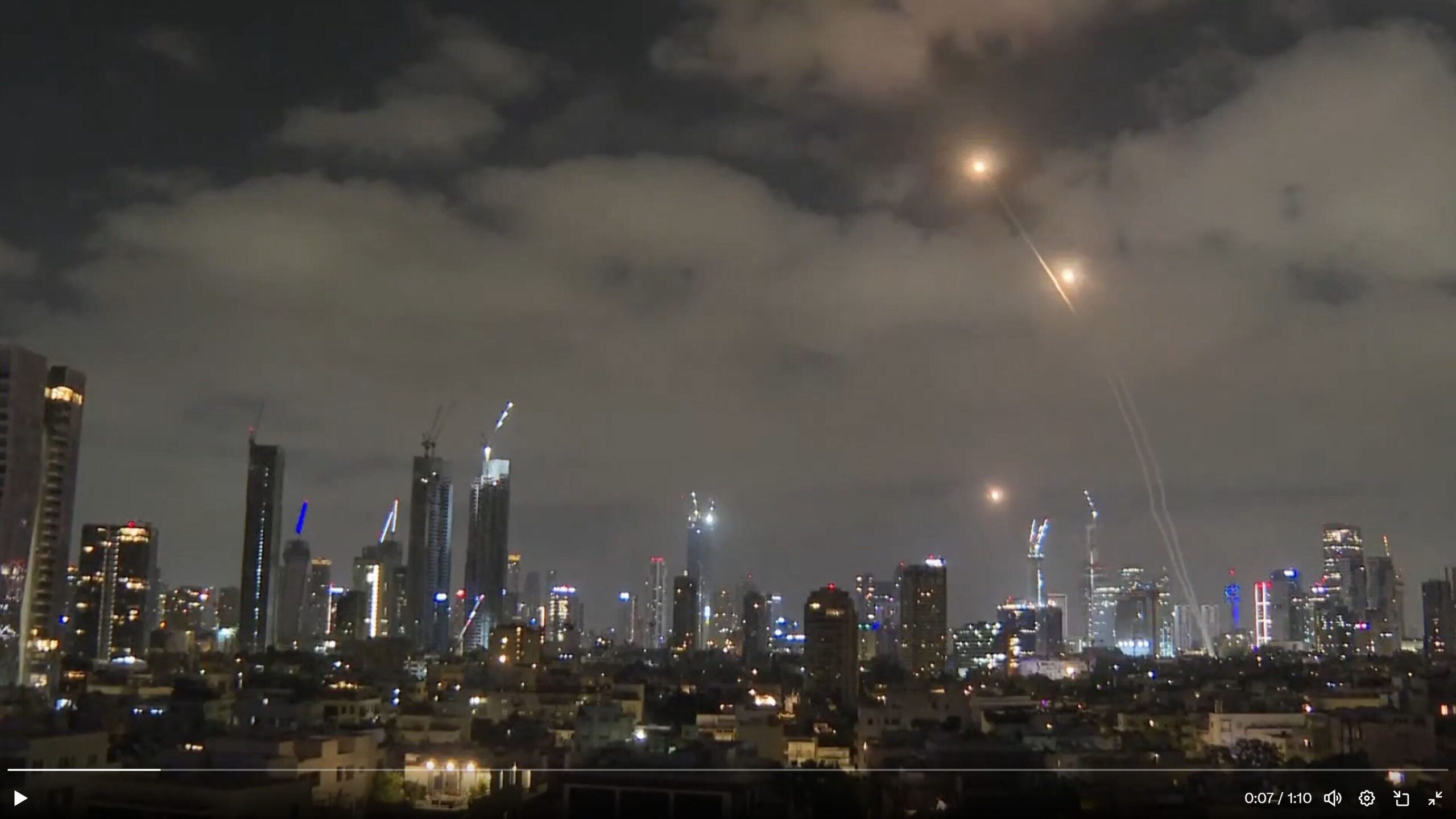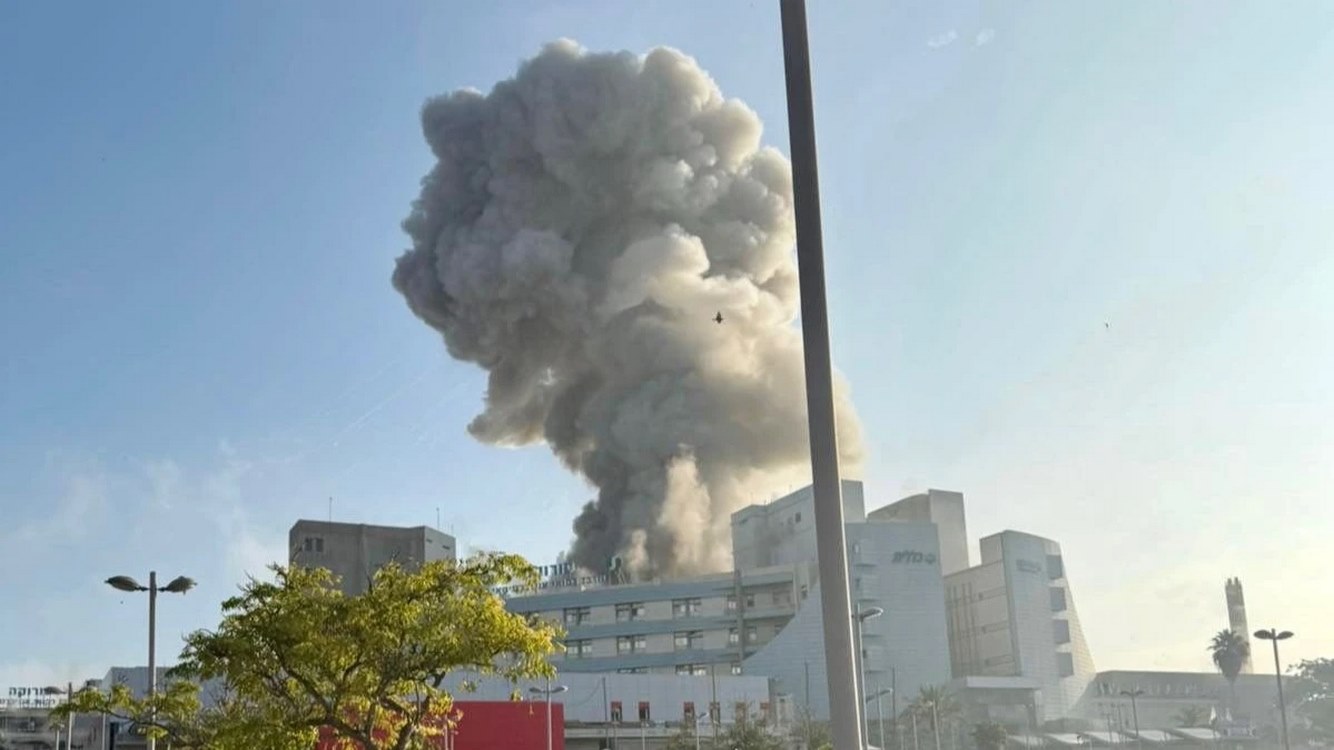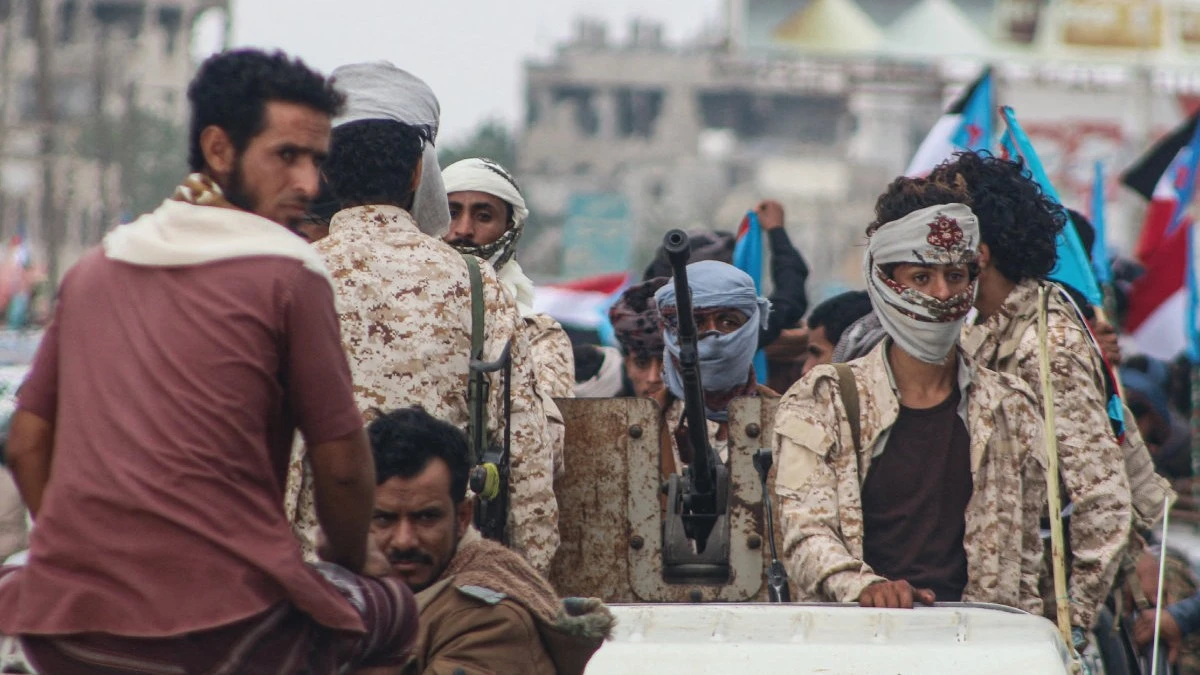Story at a glance…
-
Israeli leadership is being questioned over the issues of inadequate protection from Iranian air strikes.
-
The Iranian leadership’s previous suggestions that more forceful options remain on the table for retaliation seem to be true as missiles are arriving faster in Tel Aviv.
-
The Israelis seem to be counting on the US joining the war, even though Trump has admitted he will give himself 2 weeks to decide.
Three developments underpin this latest stage in the continual unfolding of Iran and Israel’s exchanges. The first is that Iran has fulfilled a previously-made threat that it can respond to attacks by the Zionists more forcefully, as reports on the latest Iranian missiles strikes show that they arrived 3-4 minutes faster than earlier strikes carried out in the conflict.
The second is that the smattering of reports that the Zionist Likud leadership is receiving criticism for its handling of the war seem to be genuine, after a series of recently-installed shelters have been proven to be ineffectual “death traps” for civilians sheltering from Iranian missiles. The third is that Israel clearly organized their surprise attack around the assumption that the United States would enter the war on their behalf, a decision which Donald Trump said he would postpone making for 2 weeks.
“We have always pursued peace and stability,” said Iranian president Masoud Pezeshkian in a statement today cited in Iranian media. “Under the current circumstances, lasting peace will only be possible if the Zionist enemy ceases its hostilities… failure to do so would result in a far more forceful and regrettable response from Iran”.
A senior Israeli intelligence official told NBC News yesterday that only 65% of Iranian projectiles had been intercepted in the previous 24 hours, down from 80% seen at the start of the conflict. It follows a WSJ report earlier this week that quoted US security officials as understanding Israel is now dangerously close to running out of interceptor missiles which it uses to shoot down Iranian ballistic missiles.
“Until yesterday, we got an early warning of about 10 to 11 minutes before the missiles actually fell. But this morning, it was six or seven minutes. It means that the missiles were probably much faster than the previous ones,” the unnamed Israeli source said.
Tehran launched missiles at a technology park in the city of Beersheva which Iranian military spokesmen said contained military-intelligence targets. It was adjacent to the Soroka hospital, which The Cradle reports has treated hundreds of soldiers injured in the conflicts with Hamas and Hezbollah.
Foreign news outlets had their feeds cut reporting on the hospital strike, but not before images were released on social media showing that it suffered major damage. The strikes were among the heaviest since Israel’s surprise attack on June 13th, and apparently also hit the home of a Likud party member Danny Naveh, high-rises in the Ramat Gan area, the Tel Aviv Stock Exchange, and other buildings in the neighborhood of Holon in the Greater Tel Aviv area.

Death traps amid “a Blitz”
Israeli Yedioth Ahronoth newspaper has reported according to translation that concrete shelters installed in northern Israel during the siege of Gaza are ineffectual against Iranian missiles, leaving many Israelis without any protection. The Israeli Home Front Command has had to admit that they “do not provide effective protection against long-range missiles from Iran, due to the deadly pressure waves they produce”.
For many in Akka (Acre), the first notice they received that their nearby shelter wasn’t effective were videos circulating online of the mayor closing the shelters even in areas where other protection, such as underground secure rooms with steel doors, was unavailable. However, there hadn’t been any official directive from HFC to close the shelters, prompting confusion, Palestinian Chronicle reports.
Israelis have been trained to seek out shelters for decades, yet Israel Hayom reports that thousands in central Tel Aviv are being left stranded without access to shelters during Iranian attacks. HRC began deploying prefabricated “Arbel”-type shelters around the country earlier this week, which were stronger than the concrete ones lacking doors.
The growing alarm represents an environment that Prime Minister Benjamin Netanyahu described as a “blitz,” referring to the German bombings which killed 43,000 people in London during World War II.
“It really reminds me of the British people during the blitz. We are going through a blitz,” Netanyahu said before dropping his own bomb of sorts.
“Each of us bears a personal cost, and my family has not been exempt,” Netanyahu said at the Soroka hospital. “This is the second time that my son Avner has cancelled a wedding due to missile threats. It is a personal cost for his fiancée as well, and I must say that my dear wife is a hero, and she bears a personal cost”.
The reverberations of the comments: that the Prime Minister’s sacrifice was the postponement of his son’s wedding, “howled” across Hebrew-language media, The Guardian describes.
Anat Angrest, whose son Matan was taken hostage by Hamas during their attacks beyond the walls of Gaza on October 7th, 2023, observed that the suffering “didn’t go unnoticed by my family either”.
Relying on Trump
The Israelis, who at publishing time launched new attacks in western Iran, are getting a taste of what it’s like having to rely on an increasingly combative Donald Trump.
Gideon Levy, columnist with Israeli outlet Haaretz, says the Zionists will likely be deeply disappointed of the news that President will wait two weeks before deciding whether to help bomb Iran.
“Two weeks is endless in this reality, and if he really meant two weeks, and it’s not a deception, then the chances that the Americans will get involved in this war are decreasing and decreasing,” he told Al Jazeera. Gradually, the Zionist leadership’s statements regarding the conflict have shifted from targeting nuclear facilities to destabilizing the regime of the Ayatollah, Pezeshkian, and IRGC leadership—a level of “mission creep” familiar from the American invasions of Iraq and Afghanistan.
“We must strike at all the symbols of the regime and the mechanisms of oppression of the population, such as the Basij [militia], and the regime’s power base, such as the Revolutionary Guard,” said Defense Minister Israel Katz in a statement. The shift in rhetoric may signal an attempt to encourage Iran war hawks in Trump’s orbit to pressure him on the decision. Prominent Israeli-Americans and the Neoconservatives have advocated for regime change in Iran since 1996, and those ideas, even if the men that advocated for them are no longer in power, remain fiercely advocated for among Congressional Republicans like Senator Lindsey Graham (R – SC).
Yesterday, Katz said publicly that Israel seeks to kill Iran’s Supreme Leader Ayatollah Ali Khamenei, something Trump has admitted he has contemplated.
Israel is expecting the US to join the war and wants the US to drop its heavy “bunker buster” bombs on Iran’s Fordow nuclear site, which is buried deep underground and has so far remained intact despite Iranian airstrikes. Trump released a statement that claimed his two week deadline would leave room for negotiations which he described as having a “significant chance” of taking place, though Iran has already said it will neither give up its civilian nuclear program, nor negotiate while under Israeli attack. WaL
We Humbly Ask For Your Support—Follow the link here to see all the ways, monetary and non-monetary.
PICTURED ABOVE: An explosion rocks a building in Tel Aviv on Thursday. PC: screenshot retrieved from X.
The following is earlier coverage of the conflict posted on WaL on June 16th.
Iranian Infrastructure and Israeli Confidence Heavily Damaged as Strikes Continue into Monday
As Iran and Israel traded missile strikes back and forth throughout the weekend, each has suffered significant damage—the former of the material kind, the latter of the conceptual kind.
Though 24 Israeli civilians have been killed and over 500 injured, the largest casualty in the Zionist regime’s eyes may be the words being spoken between Israelis—that despite what military and political leaders have suggested, they are not safe from Iranian reprisals.
Israel’s Qualitative Military Edge in weaponry, aided by a staggering level of deception by the Trump Administration which kept the Iranian regime from suspecting an attack due to vigorous, fictional diplomacy, wreaked a significant level of havoc on Iran’s civilian nuclear program, military leadership, oil refining capabilities, and civilian population.
Trita Parsi, a senior fellow of middle eastern affairs at the Quincy Institute for Responsible Statecraft in the US, told CNN during its live coverage of the ongoing conflict that Iran clearly surprised Israel by its ability to restructure its leadership after several high-level commanders were killed in Israeli strikes.
Parsi said that now “Iranian missiles are successful in penetrating all layers of Israel’s air defense systems,” something which Israeli civilians are suddenly starkly aware of, according to eyewitness reports from Middle East Eye.
“We realized that it’s happening here and it’s real and close. Suddenly, you accept that what’s happening in Iran can happen here, too,” said Orly Yafa-Niger, a 67-year-old Israeli living in central Israel near the city of Ramat Gan.
Menon Rappaport, a Tel Aviv resident, suggested something similar.
“There was complete euphoria over how we eliminated the Iranian leadership… but it’s clear to me that after a night like last night, people are in shock”.
“The Israeli public has been convinced over the years that it can exist here in the region while deeply disdaining all its neighbors and rampaging in a thuggish and murderous manner against everyone—whenever and however it wants—relying solely on brute force,” said Orly Noy, a Jerusalem-based journalist, also to the Eye. “That’s why there was something so substantial about the sight of the bombed-out buildings in Ramat Gan”.
Iran’s position
The Israeli Defense Forces (IDF) are claiming they have destroyed more than 120 of Iran’s missile launchers, which it said were a third of its total, over four days of hostilities. CNN was unable to verify those claims, and Iran have continued retaliating to some success. Additionally, Iran’s Revolutionary Guard Corps (IRGC) has claimed and posted images of three Israeli jets which it alleges it shot down during airstrikes.
If true, it’s the first F-35 ever downed in combat, with one particular video showing a jet going down and a pilot ejecting.
During its initial retaliations, Parsi’s claim that Iranian missiles are penetrating Israeli air defenses seems to be correct, as reports confirm that the Kirya complex, sometimes called the Israeli “Pentagon” was hit by an Iranian missile. 5 people were wounded. Containing the Ministry of Defense, the offices of the Israeli military General Staff, Camp Rabin, and key intelligence and command facilities, the Kirya is the nerve center of the state’s military.
The New Arab reports without citing evidence that the Kirya strike “has shaken public confidence and exposed the limits of Israel’s much-vaunted military shield”.
For that, it continued, some officials are questioning the value of Israel’s opening salvo which it deemed to be a pre-emptive act of self-defense to target Iranian nuclear capabilities. The damage seems in some places to be limited, such as at the large Natanz facility, where the International Atomic Energy Agency claims Israeli airstrikes caused surface-level damage.
In Tehran, President Masoud Pezeshkian, recently shared a phone call with Saudi Arabia Crown Prince Mohammed Bin Salman, who declared, “Saudi Arabia stands with its brothers in Iran and will spare no effort to support them,” emphasizing that “the entire Islamic world is united in backing Iran”.
This is not entirely correct, as Jordan assisted Israel in intercepting Iranian-launched drones en route to Israel, though Iran denied it launched any drones at all. The Cradle suggested they could have come from paramilitary groups in Iraq.
MBS also suggested that Israel was expanding hostilities to try and create a pretext for an invasion by the US, something which the staff at Antiwar claimed would instead take the form of more air strikes.
“A wise and measured response from the Islamic Republic of Iran,” he said, “will prevent them from seizing that opportunity”. WaL
We Humbly Ask For Your Support—Follow the link here to see all the ways, monetary and non-monetary.



